until his protests turned violent.
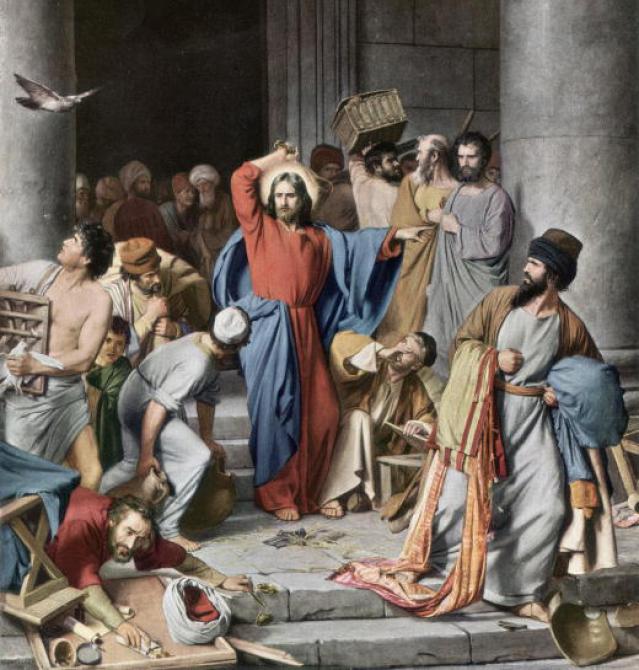
“Making a whip of cords, he drove all of them out of the temple, both the sheep and the cattle. He also poured out the coins of the money changers and overturned their tables.”
Gospel of John, chapter 2, verse 15.

The Gay Catholic Priests' Blog

“Making a whip of cords, he drove all of them out of the temple, both the sheep and the cattle. He also poured out the coins of the money changers and overturned their tables.”
Gospel of John, chapter 2, verse 15.
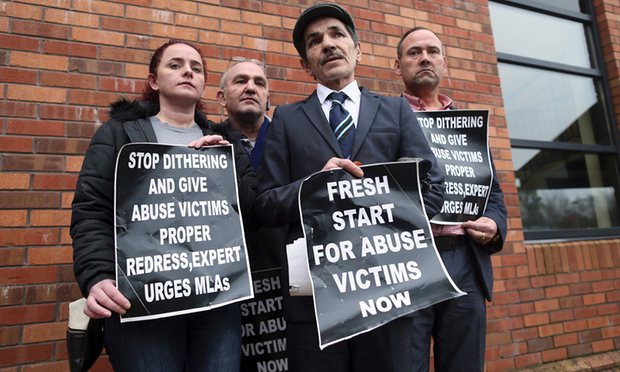
Police were guilty of a “catalogue of failures” over the abuse of boys at a Belfast care home run by a paedophile ring, a comprehensive report into child mistreatment across Northern Ireland has found.
The historical institutional abuse inquiry, established in 2014, found that a Royal Ulster Constabulary (RUC) investigation into sexual abuse at the Kincora care home in east Belfast was “inept, inadequate and far from thorough”.
The report, released on Friday, also accused the Catholic hierarchy in Ireland of ignoring repeated warnings about a serial paedophile, Fr Brendan Smyth, who sexually assaulted and raped dozens of young victims.
The implications of the Smyth scandal and other clerical abuse in the region were so serious that a senior Catholic cleric was due to discuss the findings with the pope later on Friday.
Kincora care home was run by a number of paedophiles whom it was alleged were agents of the state. They included the prominent Orange Order member William McGrath, who was accused of being an informer for MI5 and special branch in the 1970s, spying on fellow hardline loyalists.
At least 29 boys were sexually abused by McGrath, the Kincora housemaster, and others at the home. One boy is said to have killed himself by jumping off a ferry into the Irish Sea in the late 1970s following years of abuse. Three senior staff at Kincora – McGrath, Raymond Semple and Joseph Mains – were jailed in 1981 for abusing 11 boys.
The retired judge Sir Anthony Hart, who chaired the inquiry, said if the RUC had carried out a proper investigation into Kincora many of the victims might have been spared. He said 39 boys were abused byMcGrath and others running Kincora at the height of the Troubles.
But Hart said the notion that the home was a homosexual “brothel” used by the security services to entrap paedophiles to spy on influential political figures was without foundation.
Controversially, he also dismissed the notion that McGrath was a state agent. “We are satisfied that McGrath was never an agent of the state. William McGrath was a sexual pervert who had political views of a bizarre type.”
Hart was extremely critical of a number of individuals who had previously made claims about Kincora, including the former army intelligence officer Colin Wallace, who first raised allegations of a paedophile ring at the home.
The judge said the cooperation of the current Police Service of Northern Ireland was in “marked contrast to the unwillingness of some individuals”.
He stressed that all requests by the inquiry for classified files relating to Kincora were “honoured” by government and security agencies.
Hart said there was “no credible evidence” to support allegations that a paedophile ring including senior British establishment figures had abused children in Kincora. The report had “stripped away decades of half-truths masquerading as facts in relation to Kincora”.
The inquiry, which sat at Banbridge courthouse in County Down for two years, investigated children’s care homes and institutions from the Northern Ireland state’s foundation in 1922 to 1995.
During the Kincora section of the inquiry it emerged that MI5 and MI6 were legally represented at Banbridge. Critics of how the hearing into Kincora had been framed expressed concerns the government would use the Official Secrets Act to prevent the inquiry gaining access to files from MI5 and MI6.
Among the other scandals highlighted in the report was that surrounding Fr Brendan Smyth. He was a paedophile priest whom the Catholic hierarchy kept moving around parishes in both Ireland and the United States long after it knew about his abuse of children in places such as west Belfast.
The report severely criticised the Catholic Church’s behaviour.
“Father Brendan Smyth was able to carry out widespread sexual abuse of children, including some children resident in homes investigated by the inquiry, due to the failure of branches of the Roman Catholic church to properly address his behaviour from before he was ordained as a priest, despite clear warnings,” it said.
“There was repeated failure to assess the risk he posed to children, to confine him to his abbey, to thoroughly investigate allegations of abuse, to notify the police and social services, and to share information between dioceses and report matters to the appropriate civil and ecclesiastical authorities.”
The report also criticised an order of Catholic nuns, the Sisters of Nazareth. Of the homes they ran in Belfast and Derry, it said: “In each of the four homes, some nuns engaged in physical and emotional abuse against children. Emotional abuse was widespread in all homes.”
Hart and his team found that a disinfectant was used in baths in the orphanages. He said there was a significant number of cases of sexual abuse involving priests and lay staff. Many of these incidents were known to members of the clergy, who did nothing to stop them, the report said.
The leader of Ireland’s Catholics, archbishop Eamon Martin, said he would discuss its findings with Pope Francis when he met the pontiff in Rome later on Friday.
He said the report “reminds us that much work remains to be undertaken in this regard”.
Public hearings were held into 22 institutions across Northern Ireland which were run by the state, local authorities, the Catholic church, the Church of Ireland, and other voluntary organisations. Hart’s report runs to 2,300 pages and contains 10 volumes of findings and testimonies.
The NSPCC children’s charity said: “This inquiry has shed light on horrendous and widespread abuse carried out against children in Northern Ireland in the past. Institutions must now be held to account for the prolonged, systematic failings against the children in their care. It is right that the survivors receive the justice they deserve and we support the recommendation for redress.”
Complete Article HERE!
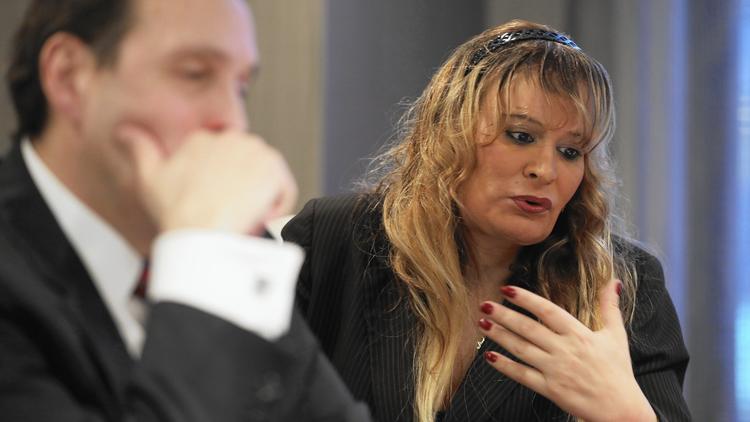
A former employee of the Chicago-based Survivors Network of those Abused by Priests has sued the victims advocacy group, alleging that SNAP exploited victims of sexual abuse by clergy in return for financial kickbacks from attorneys.
According to a lawsuit filed this week in Cook County Circuit Court, Gretchen Rachel Hammond worked as a director of development from July 2011 until she said she was fired in February 2013, shortly after asking superiors whether SNAP was referring potential clients to attorneys in exchange for donations.
In addition to the organization, defendants named in the lawsuit are Barbara Blaine, its founder and president; David Clohessy, executive director; and Barbara Dorris, outreach director.
Blaine said in a statement that “the allegations are not true.”
“This will be proven in court,” she said. “SNAP leaders are now, and always have been, devoted to following the SNAP mission: To help victims heal and to prevent further sexual abuse.”
Neither Clohessy nor Dorris could be reached for comment.
Though it did not name attorneys, the lawsuit said donations from several high-profile litigators across the country comprised a large percentage of SNAP’s income.
Jeff Anderson, a prominent Minnesota attorney for victims of clergy sex abuse who was not named in the lawsuit, confirmed that he makes regular donations to SNAP, as well as other nonprofit organizations that advocate for the safety of children. But he said he does not do it in exchange for referrals.
“I have supported SNAP and a lot of other organizations that help survivors throughout the country, unapologetically,” he said.
“The allegation is explosive because it’s unethical,” he added. “I’ve never done it nor would I ever do it.”
According to the lawsuit, Hammond grew suspicious of SNAP’s methods when she was not permitted to participate in an internal audit of SNAP by an accounting firm and was barred from attending survivors’ meetings, group therapy sessions or counseling sessions to help generate material for grant proposals.
She also was given access to a list of lawyers who regularly donated to SNAP but was told to never tell anyone that lawyers donate to the organization, according to the lawsuit. At a news conference, Hammond said she raised more than $950,000 for SNAP during her 19 months there.
A Missouri judge ruled in 2012 to open more than two decades of correspondence with victims, lawyers, witnesses and journalists to shed light on whether SNAP had coached victims to fabricate claims of repressed memory.
Shortly after that, Hammond said, she was accidentally copied on an email from Clohessy to an attorney, asking when he could expect the next donation, the lawsuit said. It was then she began to ask questions and the workplace climate dramatically changed, she alleged in the lawsuit.
She said she began to collect evidence of what she believed to be a kickback scheme, copying reams of documents and downloading records on a flash drive she used to do work at home. When SNAP sent a volunteer to her apartment to collect the flash drive, she did not disclose that she had copied it, the lawsuit said. She was fired two days later, she said.
Though she decided not to go to authorities at the time, the movie “Spotlight” renewed her concerns and she sought legal counsel. Hammond alleges she could not find employment that paid as much as she made at SNAP and is seeking compensatory damages, attorney’s fees and expenses.
Complete Article HERE!
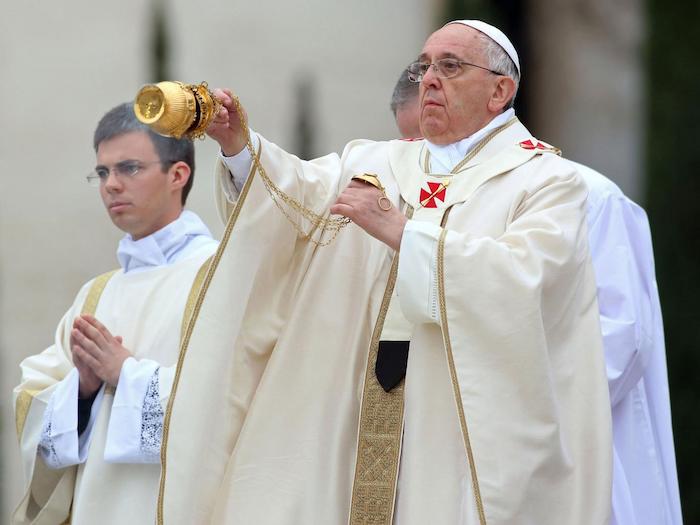
The Catholic Church should end the celibacy vow, a group of senior priests in Germany has said.
In an open letter, the group of 11 high ranking clerics said every man should have the right to choose to take the vow or not.
The retired clerics were ordained in Cologne in 1967, and wrote the letter as part of a review of their 50 years in the Catholic church.
“We believe that requiring that every man who becomes a priest to remain celibate is not acceptable,” group member Franz Decker told DW.
“We think, every Catholic should be allowed to choose if they would rather be celibate or not, regardless of whether they want to work as priests or not – just like in the Protestant Church or the Orthodox church, really, every church but the Catholic Church.”
The group argue celibacy causes many modern priests to suffer from seclusion and believe the men have little to gain from church-imposed solitude.
“What moves us is the experience of loneliness – as elderly people who are unmarried because our office required this from us, we feel it vividly on some days after 50 years on the job… We agreed to this clerical life because of our jobs, but we didn’t choose it,” the group wrote.
The letter also makes a number of suggestions as to how the Catholic Church could “modernise”, including allowing women to join the clergy.
Clerical celibacy has often been an issue of contention in the Catholic Church.
The discipline, believed to have been introduced in the fourth century, requires men to be unmarried in order to be ordained, and to practise sexual abstinence.
Proponents of clerical celibacy see it as “a special gift of God” where they can devote themselves to their religion more freely.
However, according to theologian Wunibald Müller, many priests struggle with the vow. He says some overcompensate for their loneliness by over-eating, drinking to excess or worse.
“Even if you decide to live celibate, your sexuality is still there,” he said
“If someone suppresses their desires, for warmth, for intimacy, this can backfire – they are more likely to cross a line, to abuse their position of trust to get intimacy.”
Complete Article HERE!
By Sarah MacDonald
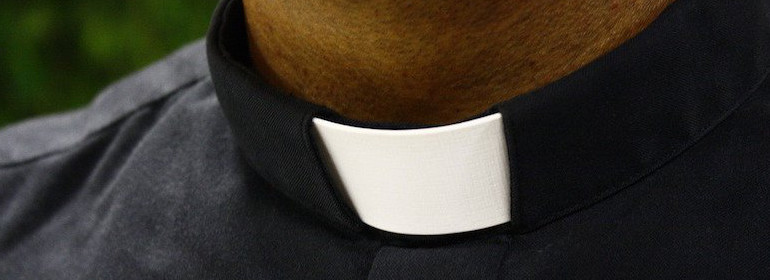
It is understood that Archbishop of Dublin Diarmuid Martin has been made aware of the allegations.
The gardaí’s sexual assault unit has reportedly also been informed but cannot launch an investigation until the alleged victim comes forward to them.
It is alleged that the young member of the clergy first met the individual in 2015 on the site which is geared towards those interested in mature men.
In his profile, the young cleric expressed a preference for men aged between 50 and 90.
The man alleges he visited the cleric at a presbytery in 2015 and stayed there overnight.
He claims that he left to go to bed early, and was later awoken by the cleric who proceeded to sexually assault him.
The man, who is described as a rural-based professional, this week informed an inside source in the church of what had occurred in the Catholic presbytery.
The man told the source that he had not yet approached the gardaí as he was fearful that this would result in his sexuality being revealed.
The alleged victim claimed that after he tried to confront the cleric about the alleged assault, he received a number of aggressive messages from the young cleric. The man has told the source he was fearful that the young cleric would tell others that he was gay.
An inside source in the church told the Irish Independent that he had this week emailed all the relevant information to Archbishop Diarmuid Martin.
He said that he had also spoken to Dr Martin twice by telephone, once on Tuesday and then again on Wednesday evening.
Some of the material emailed to Dr Martin relates to one sexually explicit image and one facial image of the cleric which he had emailed to his alleged victim.
“I believe this young man is not suitable for priesthood,” the source told the Irish Independent.
The source expressed concern that the young cleric, who recently took a vow of celibacy, “may do this (sexual assault) again in the future”.
Allegations
The Irish Independent asked the archbishop if he was aware of the allegations and if he was investigating them or reporting them to gardaí.
However, despite several requests for a comment, no response was forthcoming from the archbishop.
The allegations come as the archbishop lands in Rome ahead of the Irish bishops’ ad limina visit to the Vatican, which will see all of the country’s Catholic bishops meet Pope Francis next Friday.
While a papal visit in 2018 is likely to be high on the agenda, last year’s scandal in Maynooth seminary is also likely to figure prominently.
The Pope has on a number of occasions made his concerns about priestly formation known.
In his profile on the gay dating website, which is no longer online, the young cleric describes himself as ‘versatile’ when it comes to sex. The description said that although he likes deep conversations, he also enjoys “no-strings-attached” sex “every now and then”.
Last August, Archbishop Diarmuid Martin announced he was withdrawing some of his seminarians from Maynooth after it was revealed that some trainee priests were using the gay dating app Grindr.
The latest scandal emerges as the Irish bishops signalled that they are unwilling to bring before Pope Francis calls by members of the Irish laity for married priests, despite the crisis in vocations and collapse in priestly numbers.
Complete Article HERE!